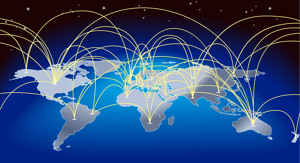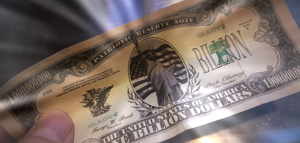Tavex uses cookies to ensure website functionality and improve your user experience. Collecting data from cookies helps us provide the best experience for you, keeps your account secure and allows us to personalise advert content. You can find out more in our cookie policy.
Please select what cookies you allow us to use
Cookies are small files of letters and digits downloaded and saved on your computer or another device (for instance, a mobile phone, a tablet) and saved in your browser while you visit a website. They can be used to track the pages you visit on the website, save the information you enter or remember your preferences such as language settings as long as you’re browsing the website.
| Cookie name | Cookie description | Cookie duration |
|---|---|---|
| tavex_cookie_consent | Stores cookie consent options selected | 60 weeks |
| tavex_customer | Tavex customer ID | 30 days |
| wp-wpml_current_language | Stores selected language | 1 day |
| AWSALB | AWS ALB sticky session cookie | 6 days |
| AWSALBCORS | AWS ALB sticky session cookie | 6 days |
| NO_CACHE | Used to disable page caching | 1 day |
| PHPSESSID | Identifier for PHP session | Session |
| latest_news | Helps to keep notifications relevant by storing the latest news shown | 29 days |
| latest_news_flash | Helps to keep notifications relevant by storing the latest news shown | 29 days |
| tavex_recently_viewed_products | List of recently viewed products | 1 day |
| tavex_compare_amount | Number of items in product comparison view | 1 day |
| Cookie name | Cookie description | Cookie duration |
|---|---|---|
| chart-widget-tab-*-*-* | Remembers last chart options (i.e currency, time period, etc) | 29 days |
| archive_layout | Stores selected product layout on category pages | 1 day |
| Cookie name | Cookie description | Cookie duration |
|---|---|---|
| cartstack.com-* | Used for tracking abandoned shopping carts | 1 year |
| _omappvp | Used by OptinMonster for determining new vs. returning visitors. Expires in 11 years | 11 years |
| _omappvs | Used by OptinMonster for determining when a new visitor becomes a returning visitor | Session |
| om* | Used by OptinMonster to track interactions with campaigns | Persistent |
| Cookie name | Cookie description | Cookie duration |
|---|---|---|
| _ga | Used to distinguish users | 2 years |
| _gid | Used to distinguish users | 24 hours |
| _ga_* | Used to persist session state | 2 years |
| _gac_* | Contains campaign related information | 90 days |
| _gat_gtag_* | Used to throttle request rate | 1 minute |
| _fbc | Facebook advertisement cookie | 2 years |
| _fbp | Facebook cookie for distinguishing unique users | 2 years |
The Dollar is Not Threatened by BRICS Countries, But By the US

Donald Trump should worry less about the BRICS’ new currency and more about countries starting to use their own currencies in trade, writes Bloomberg Opinion columnist Mihir Sharma.

Below is Sharma’s full statement:
“Few leaders can shake imaginary windmills with the theatricality of Donald Trump. He demonstrated this again by demanding that the BRICS countries “sign” that there will be no new BRICS currency. Nor must they support any other currency that could replace the US dollar in the world. It came as no surprise to anyone that he used the threat of tariff hikes as collateral for this demand.
The BRICS group originally consisted of Brazil, Russia, India, China and South Africa. Earlier this year, the group expanded again, and several members rushed to seek reconciliation with Trump. South Africa issued an official statement confirming that the group had no plans to create a common currency. India’s foreign minister confirmed that the BRICS countries had
“no interest in weakening the US dollar”
These efforts to provide Trump with clarifications actually hinted at what the incoming US president should really be worried about. South Africa said that the BRICS countries simply wanted to settle trade in their own currencies. Indian Foreign Minister Subrahmanyam Jaishankar described it as a perfectly reasonable risk-mitigation measure.
Such an activity may not be possible at the moment, however. The BRICS group consists of about 10 countries, and international trade between them is hellishly complicated. For example, India may want to buy Russian oil, but if there are no buyers in Russia for Indian products, then trading in rubles or rupees is not sustainable. Already, Moscow is trying to find a solution on how to spend the rupees it has accumulated.
But all of this is a digression from the main topic. Whether it is easy or not, the BRICS countries – and countries like them – will continue to find ways to avoid dollars in international trade. This is not to damage the US economy or to challenge the dollar’s supremacy. They simply want a part of a financial system that is not under US control.
Countries like the United Arab Emirates have long served as clearinghouses for rival geopolitical blocs. They have been advocating for new solutions for more than a decade. This goal has become more urgent now as trade wars and geopolitical polarization define the world.
New Delhi has never been as optimistic about these proposals as others. But Indian politicians have had to heal the wounds of US sanctions for a decade. I was recently told that India stopped importing oil from Venezuela precisely because of US restrictions. Instead of Venezuela, oil was imported from Iran, which ultimately created the same problem. Now India has found a way to develop trade with Russia.
The motivations for creating an alternative payments system outside of US control are very clear. This view is shared even by the most pro-Western officials in Delhi.
The complexity of international trade makes it difficult to replace the dollar
At the same time, finding alternatives has become more urgent as more companies and countries feel the need for them. The number of goods and financial institutions subject to US sanctions is growing almost monthly.
And as with all restricted markets, someone will always find a way to make money by facilitating trade. Even several pro-Western institutions – such as the Bank for International Settlements (BIS) – have launched projects aimed at transferring value without using the US dollar. Admittedly, the BIS was forced to abandon this plan a few weeks ago, as complaints began to be made in Western capitals.
Such efforts would not be made if the entire world saw the US dollar as a common commodity. Countries could trade in it, invest in it, and freely convert it. In return, the US gained “exorbitant privilege” and control over the world’s reserve currency. Because of this, politicians have also tolerated insane budget deficits that would have crippled the economy of a lesser power.
If Trump wants to maintain the dollar’s primacy, he should make it clear that the dollar’s value does not depend on American power and threats – it depends on American credibility. Targeted sanctions, Federal Reserve interference, unilateral tariffs, and geopolitical confrontation threaten the dollar’s position far more than BRICS aspirations.”
Tavex’s Key Takeaways

The greatest threat to the dominance of the US dollar is not an external challenge from BRICS or any other economic bloc, but rather the actions and policies of the United States itself.
While countries exploring global trade in their own currencies may seem like a distant and complex ambition, their motivations stem from a desire to insulate themselves from the volatility and unilateral control exercised by the US.
The overuse of sanctions, geopolitical confrontations, and an erosion of fiscal discipline have fueled a growing desire for alternatives to the dollar, even among traditionally pro-Western nations.
To secure the dollar’s primacy in the global financial system, the US must prioritise rebuilding trust and credibility
This requires abandoning coercive tactics and focusing on policies that reinforce the dollar’s reliability as a stable, neutral global reserve currency.
Ultimately, the strength of the dollar lies not in its enforcement but in the confidence it inspires – a lesson policymakers must heed to preserve its central role in the world economy.

















